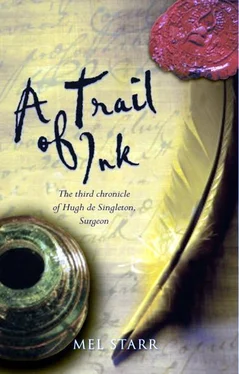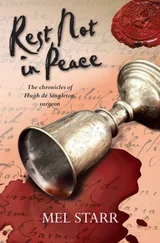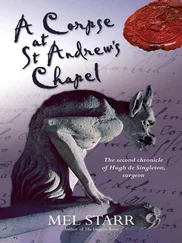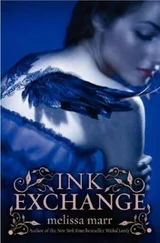Mel Starr - A Trail of Ink
Здесь есть возможность читать онлайн «Mel Starr - A Trail of Ink» весь текст электронной книги совершенно бесплатно (целиком полную версию без сокращений). В некоторых случаях можно слушать аудио, скачать через торрент в формате fb2 и присутствует краткое содержание. Год выпуска: 0101, Жанр: Исторический детектив, на английском языке. Описание произведения, (предисловие) а так же отзывы посетителей доступны на портале библиотеки ЛибКат.
- Название:A Trail of Ink
- Автор:
- Жанр:
- Год:0101
- ISBN:нет данных
- Рейтинг книги:4 / 5. Голосов: 1
-
Избранное:Добавить в избранное
- Отзывы:
-
Ваша оценка:
- 80
- 1
- 2
- 3
- 4
- 5
A Trail of Ink: краткое содержание, описание и аннотация
Предлагаем к чтению аннотацию, описание, краткое содержание или предисловие (зависит от того, что написал сам автор книги «A Trail of Ink»). Если вы не нашли необходимую информацию о книге — напишите в комментариях, мы постараемся отыскать её.
A Trail of Ink — читать онлайн бесплатно полную книгу (весь текст) целиком
Ниже представлен текст книги, разбитый по страницам. Система сохранения места последней прочитанной страницы, позволяет с удобством читать онлайн бесплатно книгу «A Trail of Ink», без необходимости каждый раз заново искать на чём Вы остановились. Поставьте закладку, и сможете в любой момент перейти на страницу, на которой закончили чтение.
Интервал:
Закладка:
"Venison? To a priest?"
"Aye… a long story."
"I have nothing but time, and no books with which to fill it. Tell me."
So I told Master John of the scandal of the betrayed confessional of the priest at St Andrew's Chapel. And of the blackmail he plotted with Henry atte Bridge — and Henry's brother, Thomas — of those who confessed to poaching, adultery, and cheating at their business.
"I came to Oxford this day to buy more ink and parchment so I may write of these felonies while details remain fresh in my memory."
"And what stationer receives your custom?"
"Robert Caxton. It was you who sent me first to Caxton's shop. You knew I would find more there than books, ink, and parchment."
"I did? Yes, I remember now telling you of the new stationer, come from Cambridge with his daughter… ah, that is your meaning. I am slow of wit these days. I think of nothing but my books."
"You did not guess I might be interested in the stationer's daughter?"
"Nay," Wyclif grimaced. "I surprise myself for my lack of perception. You are a young man with two good eyes. The stationer's daughter…"
"Kate," I said.
"Aye, Kate is a winsome lass."
"She is. And this day I have gained her father's permission to seek her as my wife."
Master John's doleful expression brightened. The corners of his mouth and eyes lifted into a grin. "I congratulate you, Hugh."
"Do not be too quick to do so. I must woo and win her, and I fear for my ability."
"I have no competency in such matters. You are on your own. 'Tis your competency solving puzzles I seek."
"But I am already employed."
Master John's countenance fell. "I had not considered that," he admitted. "Lord Gilbert requires your service… and pays well for it, I imagine."
"Aye. I am well able to afford a wife."
"But could not the town spare you for a week or two, until my books are found? Surely a surgeon… never mind. You see how little I heed other men's troubles when I meet my own."
"All men think first of themselves. Why should you be different?" I asked.
"Why? Because my misplaced esteem tells me I must. Do you not wish the same, Hugh? To be unlike the commons? They scratch when and where they itch and belch when and where they will and the letters on a page are as foreign to them as Malta."
"But… I remember a lecture…"
Wyclif grimaced.
"… when you spoke of all men being the same when standing before God. No gentlemen, no villeins, all sinners."
"Hah; run through by my own pike. 'Tis true. I recite the same sermon each year, but though we be all sinners, and all equally in need of God's grace, all sins are not, on earth, equal, as they may be in God's eyes. Else all punishments would be the same, regardless of the crime."
"And what would be a fitting penalty for one who stole twenty books?"
Wyclif scowled again. "Twenty-two," he muttered. "My thoughts change daily," he continued. "When I first discovered the offense I raged about the Hall threatening the thief with a noose."
"And now?"
Master John smiled grimly. "I have thought much on that. Was the thief a poor man needing to keep his children from starvation, I might ask no penalty at all, so long as my books be returned. But if the miscreant be another scholar, with means to purchase his own books, I would see him fined heavily and driven from Oxford, and never permitted to study here again, or teach, be he a master.
"Both holy and secular wisdom," Wyclif mused, "teach that we must not do to another what we find objectionable when done to us. No man should hold a place at Oxford who denies both God and Aristotle."
"You think an Oxford man has done this?"
Wyclif chewed upon a fingernail, then spoke. "Who else would want my books, or know their worth?"
"That, it seems to me, is the crux of the matter," I replied. "Some scholar wished to add to his library, or needed money, and saw your books as a way to raise funds."
As it happened, there was a third reason a man might wish to rob Master John of his books, but that explanation for the theft did not occur to me until later.
"I am lost," Wyclif sighed. "I am a master with no books, and I see no way to retrieve them."
I felt guilty that, for all his aid given to me, I could offer no assistance to the scholar. I could but commiserate, cluck my tongue, and sit in his presence with a long face.
The autumn sun set behind the old Oxford Castle keep while we talked. Wyclif was about to speak again when a small bell sounded from across the courtyard.
"Supper," he explained, and invited me to follow him to the refectory.
Scholars at Canterbury Hall are fed well, but simply. For this supper there were loaves of maslin — wheat and barley — cheese, a pease pottage flavored with bits of pork, and tankards of watered ale. I wondered at the pork, for some of the scholars were Benedictines. Students peered up from under lowered brows as we entered. They all knew of the theft, and, I considered later, suspected each other of complicity in the deed.
A watery autumn sun struggled to rise above the forest and water meadow east of Oxford when I awoke next morning. Wyclif bid me farewell with stooped shoulders and eyes dark from lack of sleep. I wished the scholar well, and expressed my prayer that his books be speedily recovered. Master John believes in prayer, but my promise to petition our Lord Christ on his behalf seemed to bring him small comfort. I think he would rather have my time and effort than my prayers. Or would have both. Prayers may be offered cheaply. They require small effort from men, and much from God. The Lord Christ has told us we may ask of Him what we will, but I suspect He would be pleased to see men set to their work, and call upon Him only when tasks be beyond them.
I thought on this as I walked through the awakening lanes of Oxford to Holywell Street and Robert Caxton's shop. Was it really my duty to Lord Gilbert which prevented me from seeking Wyclif's stolen books, or was I too slothful to do aught but pray for their return? I did not like the answer which came to me.
As I approached the stationer's shop I saw a tall young man standing before it, shifting his weight from one foot to the other. The fellow was no scholar. He wore a deep red cotehardie, cut short to show a good leg. His chauces were parti-colored, grey and black, and his cap ended in a long yellow liripipe coiled stylishly about his head. The color of his cap surprised me. All who visit London know that the whores of that city are required by law to wear yellow caps so respectable maidens and wives be left unmolested on the street. He was shod in fine leather, and the pointed toes of his shoes curled up in ungainly fashion.
The fellow seemed impatient; while I watched he strode purposefully past Caxton's shop, then reversed his steps and walked past in the opposite direction, toward my approach. I drew closer to the shop, so that at each turn I could see his face more clearly. His countenance and beard were dark, as were his eyes. The beard was neatly trimmed, and his eyes peered at my approach from above an impressive nose — although, unlike mine, his nose pointed straight out at the world, whereas mine turns to the dexter side. He seemed about my own age — twentyfive years or so. He was broad of shoulder and yet slender, but good living was beginning to produce a paunch.
I slowed my pace as I approached the shuttered shop. Caxton would open his business soon, and I assumed this dandy needed parchment, ink, or a book, although he did not seem the type to be much interested in words on a page.
I stood in the street, keeping the impatient coxcomb company, until Robert Caxton opened his shop door and pushed up his shutters to begin business for the day. The stationer looked from me to his other customer and I thought his eyes widened. I bowed to the other client and motioned him to precede me into the shop. He was there before me.
Читать дальшеИнтервал:
Закладка:
Похожие книги на «A Trail of Ink»
Представляем Вашему вниманию похожие книги на «A Trail of Ink» списком для выбора. Мы отобрали схожую по названию и смыслу литературу в надежде предоставить читателям больше вариантов отыскать новые, интересные, ещё непрочитанные произведения.
Обсуждение, отзывы о книге «A Trail of Ink» и просто собственные мнения читателей. Оставьте ваши комментарии, напишите, что Вы думаете о произведении, его смысле или главных героях. Укажите что конкретно понравилось, а что нет, и почему Вы так считаете.












